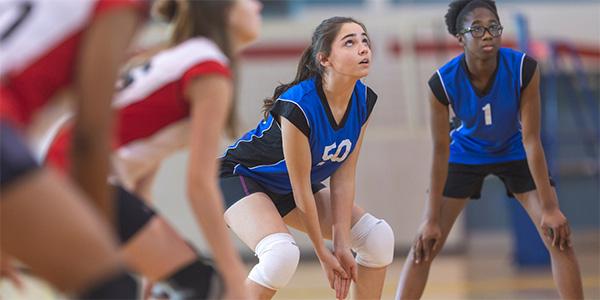
Individual Talent Alone won’t Make a Team Successful
Team members must be able to understand and take advantage of each other’s strengths to be successful. That’s teamwork.
Coaches play an important role in enhancing teamwork. They set the tone for the whole team. If the coach is committed to the team, players also see the importance of being committed. In contrast, coaches who are not as committed imply that the team isn’t that important.
Coaches can encourage teamwork by treating each player equally. For example, a coach may have a team rule that if players miss practics, they don’t start a game. No matter who the player is (starter, non starter for example), follow that rule. Being consistent will maintain your credibility as a coach. When players see you as credible, they will be more likely to listen to you and follow the rules.
Here are some additional ways you can build teamwork:
- Encourage open lines of communication between you and your young athletes–and among the athletes themselves.
As part of that communication, coaches, need to be clear about team members’ responsibilities and practice and tournament expectations. Coaches need to communicate well about strategy.
Team members need to be open with one another about running plays and improving on-court productivity. Athletes don’t necessarily have to be best friends, but they need to respect one another.
- Make sure all athletes know their role on the team. Teamwork is undermined when athletes don’t know their roles. Prevent ambiguity about athletes’ roles by scheduling team meetings to discuss kids’ roles. Athletes should also talk to each other about what they need from their team mates. For example, they might discuss their need to encourage each other after making mistakes.
- Develop a team mission. This could be your goals for the season. It could be a motto or statement to encourage team unity. You could also ask athletes to sign the team mission. When teams develop goals or a mission, athletes are more likely to be committed and take ownership of the team.
- Work to create a team identity that feels different than other teams’ identity. Players are more likely to develop team unity if their team feels unique. To do this, encourage team rituals. Consider establishing cheers, a team mission, warm up routines or unique drills.
Many athletes participate in sports to be part of a team. You, as a coach, can improve athletes’ experiences by focusing on the importance of teamwork.
Related Sports Psychology Articles
- Building a Positive Team Culture
- Dealing with Outbursts in Youth Sports
- How Toxic Sports Cultures Hurt Kids’ Mental Health
*Subscribe to The Ultimate Sports Parent Podcast
*Subscribe to Peak Performance Sports on Youtube
Download a free sports psychology report to improve your mental game!
The Confident Sports Kid

When kids lack confidence, they doubt themselves, stop taking risks, play tentatively, and are hard on themselves. As a result, kids often lose their motivation to improve. Ultimately, these barriers keep them from enjoying sports and making the most of their physical talent.
“The Confident Sports Kid” program is actually two programs: one that teaches sports parents how to boost their kids’ confidence, and another that teaches young athletes age 8 to 18 how to improve their self talk, avoid negative thinking, overcome expectations that limit confidence, and much more. The program will help kids boost their confidence in sports and life…and enjoy sports more.
